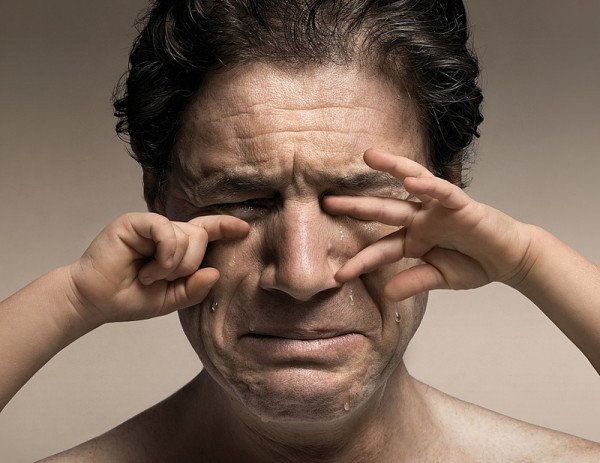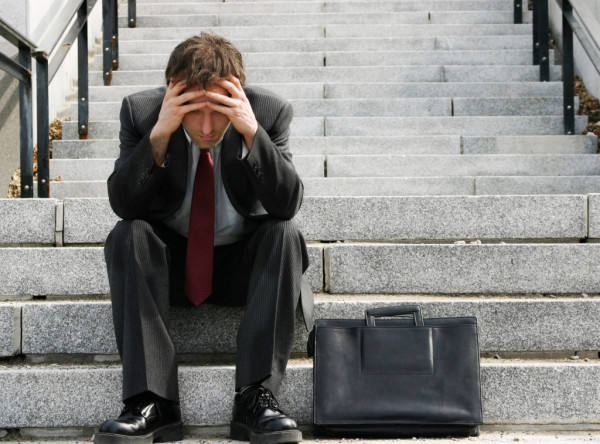Low self-esteem: where it comes from and how to improve it
Low self-esteem- this is a person's self-doubt and their actions, as well as an underestimated personal assessment of their actions and so on. There are two types of low self-esteem: stable and floating. The latter, one might say, depends on the "mood". The fact that a person has low self-esteem can be indicated by his behavior. It either speaks for itself: self-doubt, isolation and so on, or, on the contrary, a person demonstratively shows his greatness and confidence. It is these people who are prone to suicide, alcoholism and drug addiction. It is possible and necessary to deal with such a psychological problem in order to avoid unwanted consequences. Read on how to properly assess yourself.
Reasons for low self-esteem
Low self-esteem is not good. In order for a person to be able to fully realize himself and not lose interest in life, he needs to be able to correctly assess himself and his actions. Before considering ways to raise self-esteem, you need to find out the reason for its underestimation.
Low self-esteem can occur as in childhood and throughout life.
A small baby is not yet able to independently assess his actions and deeds, therefore he listens to the opinion of close people, i.e. to parents. Not showing the proper signs of love and affection, they lower the self-esteem of their child, which has just begun its formation. Replicas with humiliation and unreasonable criticism that fly out of the lips of parents will subsequently negatively affect the future of the baby. After such a childhood, a person understands that criticism is normal and that one should not demand respect for oneself. 
The next reason, which also arises from childhood, is the attempt by the parents to force the child to conform to their ideals. In this case, children's self-esteem falls due to the imposition of a standard by the parents. Taking as an example someone from relatives or close acquaintances, parents impose on the child a lifestyle, thinking, and so on. The kid begins to think that if he is not like that, then his life, like himself, will be useless and worthless. With age, this feeling does not disappear, but only intensifies. 
An adult can have low self-esteem due to diseases and external defects that have been ridiculed since childhood. It is very difficult when you are not like others, especially when others remind you of it with their laughter and discussion.
Signs of low self-esteem
Every person is different. He is born with a certain set of qualities that are assigned only to him. But there is still something that unites people with low self-esteem.
Often such people cannot decide on the choice of something. They are afraid that their decision may be wrong. They are also characterized by fear of society and fear of self-manifestation. They are afraid of praise and do not know how to accept it. People whose self-esteem is practically at the “bottom” are confident that in any situation their opinion is wrong. They do not like to participate in disputes and competitions, because they know very well that they will not get the victory. 
The favorite pastime of such individuals is comparing themselves with others. They like to find ideal people to once again be convinced of their "worthlessness." Low self-esteem also manifests itself in inadequate assessment of their actions, and the absence of happy moments in life.
How to improve self-esteem
To raise self-esteem, you need to conduct an internal dialogue with yourself. Try to consult with your own "I", make decisions that do not go beyond what is permitted. Learn to separate the advice you need from those that can either hurt you or don't make sense at all.
Self-esteem is a person's attitude towards himself and his actions. Every day, communicate pleasant thoughts, share extraordinary interesting information, imagine that you are in a dialogue with a pleasant and beloved person. Learn to support yourself in any situation, you do not need to escalate the situation with phrases such as: “You won't succeed!”, “Have you seen yourself? Jonah!".
Feelings of guilt can destroy a person, especially if he blames himself. People who have low self-esteem tend to feel guilty about themselves. If something did not work out for you - draw conclusions without accusations. 
As we already know, justification is a sign of guilt. This means that whatever happens, do not make excuses, because you are proving your guilt to your interlocutor. Even if you can defend an argument, negative emotions will still remain and be reflected in your perception of yourself.
Learn to accept gratitude. Modesty is, of course, good only if it is to the point and if not often. For every work that has been done in good faith, one should be grateful. If you cannot accept it, then you will not see good self-esteem.



The most unfortunate ending of the article in the form of an ultimatum verdict: "... you will not see a good self-esteem POINT"
Author! Success!!! )))